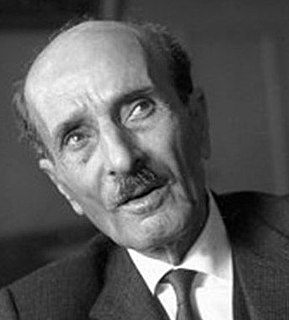A Quote by Robert A. Heinlein
You obviously don't know what an Old Man of the Sea great wealth is. It is not a fat purse and time to spend it. Its owner finds himself beset on every side, at every hour, wherever he goes, by persistent pleaders, like beggars in Bombay, each demanding that he invest or give away part of his wealth. He becomes suspicious of honest friendship--indeed honest friendship is rarely offered him; those who could have been his friends are too fastidious to be jostled by beggars, too proud to risk being mistaken for one.
Quote Topics
Away
Becomes
Been
Being
Bombay
Could
Could Have Been
Demanding
Each
Every
Fastidious
Fat
Finds
Friends
Friendship
Give
Goes
Great
Him
Himself
His
Honest
Honest Friends
Hour
Indeed
Invest
Know
Like
Man
Mistaken
Obviously
Offered
Old
Old Man
Owner
Part
Persistent
Proud
Purse
Rarely
Risk
Sea
Side
Spend
Suspicious
Those
Time
Too
Wealth
Wherever
Related Quotes
I saw rich beggars and poor beggars, proud beggars and humble beggars, fat beggars and thin beggars, healthy beggars and sick beggars, whole beggars and crippled beggars, wise beggars and stupid beggars. I saw amateur beggars and professional beggars. A professional beggar is a beggar who begs for a living.
There are times in every friendship when you or your friend are too busy to call or are more focused on other relationships. It will hurt, but it's rarely personal. Making it personal usually makes things worse, and being too clingy or demanding can drive a friend even further away. Like people, friendships can get 'overworked' and need to rest.
It is a common error, and the greater and more mischievous for being so common, to believe that repentance best becomes and most concerns dying men. Indeed, what is necessary every hour of our life is necessary in the hour of death too, and as long as one lives he will have need of repentance, and therefore it is necessary in the hour of death too; but he who hath constantly exercised himself in it in his health and vigor, will do it with less pain in his sickness and weakness; and he who hath practiced it all his life, will do it with more ease and less perplexity in the hour of his death.
Johnny Miller is a very honest guy. That may have been to his detriment sometimes. On television, he's too honest. We talk about it a lot. Do you really need to be that honest? You know what I mean? But he's a good man. He's a good family man. He's got good values, and we're delighted to have him as our honoree.
No man could bring himself to reveal his true character, and, above all, his true limitations as a citizen and a Christian, his true meannesses, his true imbecilities, to his friends, or even to his wife. Honest autobiography is therefore a contradiction in terms: the moment a man considers himself, even in petto, he tries to gild and fresco himself. Thus a man's wife, however realistic her view of him, always flatters him in the end, for the worst she sees in him is appreciably better, by the time she sees it, than what is actually there.
I'll not meddle with it; it is a dangerous thing; it makes a man a coward; a man cannot steal, but it accuseth him; a man cannot swear, but it checks him; a man cannot lie with his neighbor's wife, but it detects him. 'Tis a blushing, shame -faced spirit, that mutinies in a man's bosom ; it fills one full of obstacles; it made me once restore a purse of gold that by chance I found; it beggars any man that keeps it; it is turned out of all towns and cities for a dangerous thing; and every man that means to live well endeavors to trust to himself and live without it.
Those who have not found their true wealth, which is the radiant joy of Being and the deep, unshakable peace that comes with it, are beggars, even if they have great material wealth. They are looking outside for scraps of pleasure or fulfillment, for validation, security, or love, while they have a treasure within that not only includes all those things but is infinitely greater than anything the world can offer.
He had put his hand up in class, a declaration of existence, a claim that he knew something. And that was forbidden to him. They could give a number of reasons for why they had to torment him; he was too fat, too ugly, too disgusting. But the real problem was simply that he existed, and every reminder of his existence was a crime.
The Landlord is a gentleman who does not earn his wealth. He has a host of agents and clerks that receive for him. He does not even take the trouble to spend his wealth. He has a host of people around him to do the actual spending. He never sees it until he comes to enjoy it. His sole function, his chief pride, is the stately consumption of wealth produced by others.
Every time man makes a new experiment he always learns more. He cannot learn less. He may learn that what he thought was true was not true. By the elimination of a false premise, his basic capital wealth which in his given lifetime is disembarrassed of further preoccupation with considerations of how to employ a worthless time-consuming hypothesis. Freeing his time for its more effective exploratory investment is to give man increased wealth.
There are only two kinds of men in this world: Honest men and dishonest men. ...Any man who says the world owes him a living is dishonest. The same God that made you and me made this earth. And He planned it so that it would yield every single thing that the people on it need. But He was careful to plan it so that it would only yield up its wealth in exchange for the labor of man. Any man who tries to share in that wealth without contributing the work of his brain or his hands is dishonest.



































